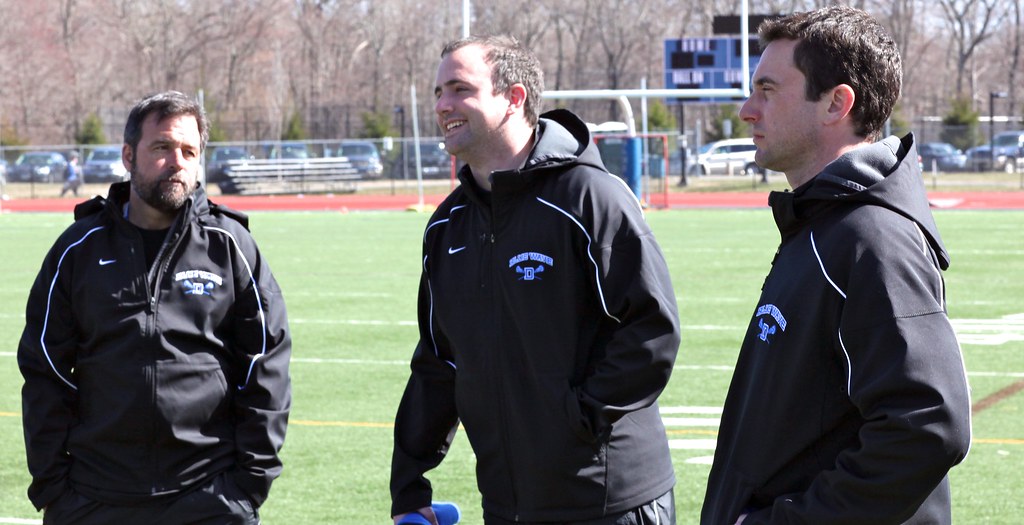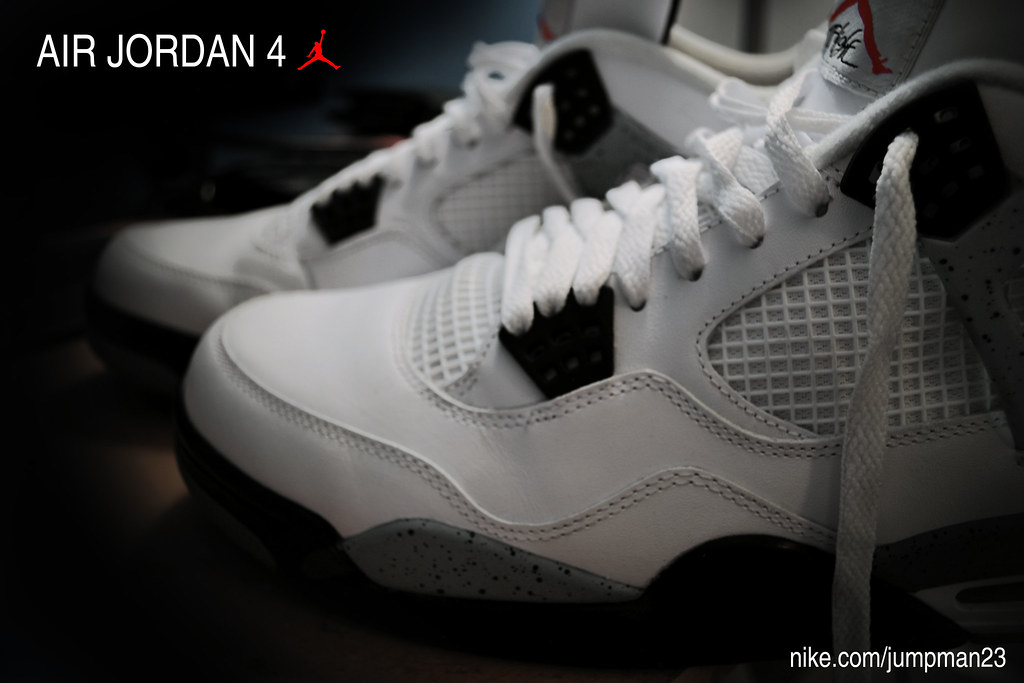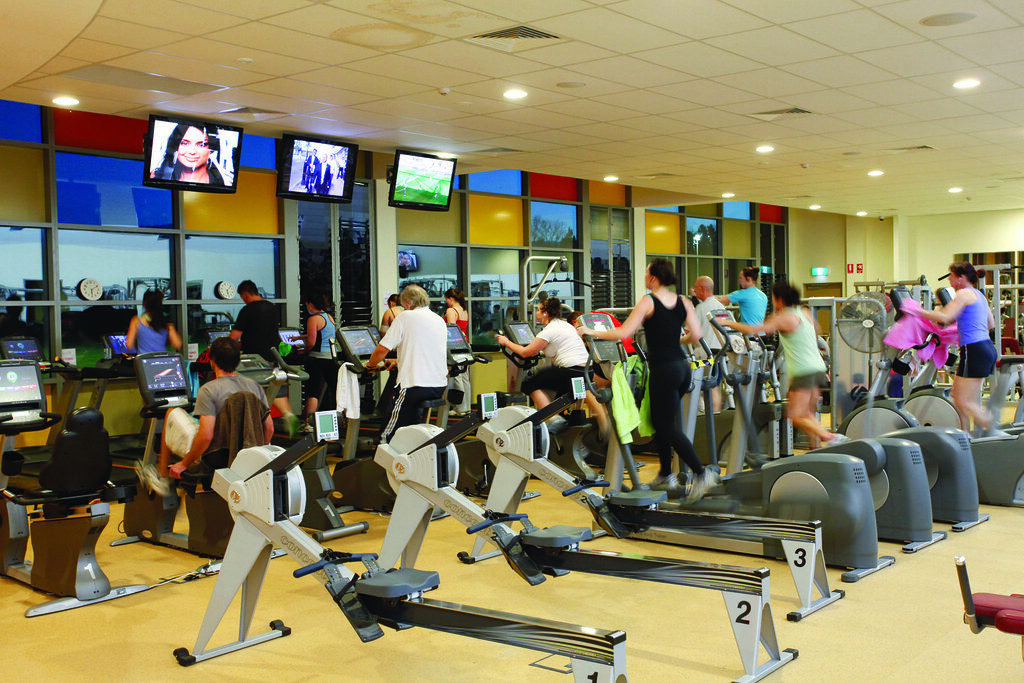
The transition from a high-stakes athletic career to post-retirement life presents a unique blend of opportunities and challenges. For many former athletes, the drive, discipline, and strategic thinking that defined their time on the field or court don’t simply vanish with retirement; instead, these invaluable attributes can be powerfully channeled into new ventures. The landscape of post-career earning has evolved significantly, offering a plethora of side gigs that not only provide substantial income but also leverage the very essence of what made these individuals elite performers.
Indeed, the broader trend of working in retirement is gaining momentum, driven by both financial necessity and a desire for continued engagement. According to the Pew Research Center, 19% of Americans aged 65 and older held some kind of paying gig in retirement in 2023, nearly doubling the rate from 1987. This shift is not merely about supplementing income; as Ilir Salihi, founder and senior editor at Income Insider, observes, “Many retirees, like my parents, find that complete leisure gets to be too boring after the initial honeymoon period, and part-time work or volunteering provides structure, social interaction and intellectual stimulation.” For former athletes accustomed to rigorous schedules and public engagement, this psychological benefit is particularly profound.
For those former athletes aspiring to not just maintain a comfortable lifestyle but to thrive financially, the goal isn’t just “extra money;” it’s about building a robust, six-figure income stream. This article, presented in two comprehensive sections, will explore 13 of the most promising side gigs, specifically tailored to former athletes aiming for this caliber of financial success. In this first section, we delve into six high-impact opportunities that capitalize on their established expertise, public profile, and inherent competitive advantage, offering pathways to significant post-retirement wealth.

1. **Sports Broadcasting**
For many former athletes, the transition to sports broadcasting is a natural and highly visible path, offering a seamless way to remain intimately connected to the games they love. Their unique perspective, gained from years of competitive play at the highest levels, provides an unparalleled depth of insight that resonates deeply with audiences. This isn’t just about calling plays; it’s about dissecting strategies, understanding the emotional stakes, and sharing an insider’s view that only a seasoned professional can offer, making it a highly valued contribution to any media outlet.
In this role, responsibilities often extend beyond live commentary during games. Former athletes frequently engage in comprehensive pre-game and post-game analyses, breaking down team performances, individual player contributions, and the broader implications of results. They also conduct revealing interviews with current athletes, coaches, and league officials, leveraging their personal connections and understanding of the sports world to extract unique perspectives. This multifaceted involvement keeps their minds sharp and their connections active, echoing the dynamic environment they once thrived in.
While a bachelor’s degree in broadcasting, journalism, or communications is often preferred for those entering the field, it is frequently not a strict prerequisite for individuals with significant professional sports experience. Networks and media companies often prioritize the authentic, firsthand knowledge and established public persona that former athletes bring to the table. Their credibility and name recognition can immediately draw viewers, making them incredibly attractive hires in a competitive media landscape.
The earning potential in sports broadcasting can vary widely, largely dependent on the athlete’s profile, experience, and the size of the audience they command. However, for well-known figures, contracts can easily reach—and often far exceed—the six-figure mark, providing not only substantial income but also a continued platform for influence and personal brand building. It’s a powerful testament to how a passion for sports can continue to fuel a financially rewarding career long after playing days are over.
Read more about: From Arena to Boardroom: 13 Elite Athletes and Musicians Forging New Empires as CEOs

2. **Coaching**
Transitioning into coaching represents another profoundly impactful avenue for former athletes, allowing them to impart their invaluable wisdom, tactical knowledge, and motivational prowess to the next generation of competitors. This role is far more than just teaching skills; it involves a holistic approach to athlete development, fostering discipline, mental resilience, and the spirit of teamwork that are hallmarks of any successful sporting endeavor. The inherent understanding of the physical and psychological demands of competition makes former athletes uniquely qualified to guide others.
A coach’s responsibilities are comprehensive, typically including the meticulous development of training programs tailored to individual and team needs. They spend significant time analyzing performance, breaking down game film, and identifying areas for improvement, much like they once did for their own play. Crucially, they serve as mentors, guiding athletes through challenges, instilling confidence, and helping them navigate the pressures of sports, a role for which their personal experiences are an unparalleled asset.
The compensation for coaching can be incredibly diverse, ranging from volunteer positions at youth levels to multi-million dollar contracts at the professional and elite collegiate echelons. For those with a proven track record as a professional athlete and a talent for leadership, positions at major universities or within professional organizations can command substantial six-figure salaries. This allows them to continue earning a significant income while directly contributing to the growth and success of others in the sporting world.
While specific degrees in sports science or physical education can be beneficial, the most critical “qualification” for many higher-level coaching roles is firsthand experience as an athlete, particularly at an elite level. This practical wisdom, combined with a demonstrated ability to lead and inspire, often outweighs formal academic credentials. The opportunity to shape young lives, develop winning strategies, and remain immersed in the competitive environment offers a deeply rewarding and financially viable post-athletic career.
Read more about: Trouble on the Update: 13 Smartwatches Users Wish They Never Synced to Their Phone.

3. **Professional Consulting**
For former athletes possessing specialized expertise beyond the immediate confines of their sport, professional consulting emerges as an exceptionally lucrative side gig, with a clear path to six-figure earnings. This avenue allows them to pivot their ingrained attributes — leadership, strategic thinking, peak performance management, and resilience — into actionable advice for businesses, organizations, or even individuals seeking to excel in their respective fields. The market highly values insights from those who have consistently performed under pressure.
The scope of consulting for former athletes is remarkably broad. They can offer guidance on team building, drawing directly from their experiences in cohesive locker rooms and competitive environments. Their insights into motivation and mental toughness are invaluable for corporate leadership development programs. Furthermore, with their unique understanding of the sports industry, they can consult on marketing strategies, brand partnerships, and player development for emerging sports businesses or youth academies, carving out a highly specialized and in-demand niche.
The earning potential in professional consulting is explicitly high, often operating on an hourly rate of $100 to $200 or more, especially for those with niche knowledge and a strong personal brand. The context highlights individuals like Brad Rice, who earns over $200,000 a year part-time by consulting on Salesforce, and Jayne, who makes $10,000 per month helping babies sleep better. These examples underscore that deep expertise, regardless of the field, can be monetized substantially, a principle that applies perfectly to the unique knowledge base of former athletes.
Leveraging an athlete’s name recognition and network can significantly accelerate their entry and success in the consulting world. They can quickly attract clients eager to tap into their unique perspectives on overcoming obstacles, fostering high performance, and achieving sustained success. Establishing an online platform for coaching or offering specialized training modules can also create scalable income streams, allowing them to maintain a flexible schedule while commanding top-tier fees, firmly positioning this as a premiere six-figure side gig.
Read more about: 12 Simple Steps to Protect Your Legal Rights After a Minor Car Accident

4. **Digital Content Creation & Personal Branding**
In the modern digital landscape, former athletes are uniquely positioned to excel in content creation and personal branding, transforming their stories, insights, and public recognition into significant income streams. Whether through podcasting, launching an online business, or becoming a “granfluencer,” this category capitalizes on their inherent ability to connect with an audience and share valuable experiences. It’s about translating their athletic journey into compelling narratives and practical advice that resonates far beyond the sports arena.
Podcasting, for instance, offers a low-cost entry point with immense potential for high earnings. A former athlete’s voice, experience, and network of contacts can attract a vast listenership, leading to lucrative sponsorship deals and advertising revenue. The context mentions Scott Johnson, whose “What Was That Like” podcast generates thousands of dollars in sponsorship revenue every month, demonstrating the clear path to a six-figure annual income. Athletes can discuss their careers, current sports events, training methodologies, or life lessons learned through competition.
Beyond podcasts, establishing an online business, such as a helpful website, can serve as a central hub for their personal brand. Examples like Debbie Gartner, earning around $20,000 a month from advertising and affiliate partnerships on her flooring site, or Katie Emery, making $6,000 a month discussing natural gray hair, illustrate the power of niche content. For former athletes, this could involve sites dedicated to fitness regimens, sports analysis, healthy living, or even motivational content, all directly leveraging their expertise and public appeal.
Furthermore, the rise of the “granfluencer” phenomenon demonstrates the substantial earning power of social media for individuals with compelling life stories and wisdom to share. While the context refers to seniors in general, a former athlete with a large existing following or the ability to cultivate one can monetize their accounts with brand sponsorships. Their authenticity and relatable journey can attract millions of followers, leading to high-value endorsements and partnerships, ensuring that their public persona continues to generate a substantial six-figure income.
Read more about: From Pez to Pop Art: 12 Groundbreaking 1950s Creations That Still Define Our World Today

5. **Product Licensing**
One of the most innovative and potentially high-yielding side gigs for former athletes is product licensing, a strategy that allows them to monetize their creative ideas without the heavy burden of manufacturing, marketing, or distribution. This approach leverages their understanding of consumer needs within the sports and fitness markets, transforming conceptual designs or innovative solutions into profitable ventures. It’s a testament to the idea that intellectual property can be just as valuable, if not more so, than physical labor.
The core mechanism of product licensing involves selling your product ideas to large companies. These established corporations, with their vast resources and distribution networks, then handle all aspects of production and sales. In return, the athlete receives royalties for every sale generated from their licensed idea. This model eliminates the significant upfront capital investment and operational complexities typically associated with launching a new product, making it an ideal passive income stream.
The earning potential from product licensing can be extraordinary. The context provides a compelling example: Nate Dallas, a dentist by day, earned a remarkable $300,000 from Mattel after licensing them an idea for a Pictionary spin-off. This single success story vividly illustrates how a well-conceived idea can translate directly into a six-figure windfall, demonstrating the immense value that can be unlocked through this particular side hustle.
For former athletes, this means tapping into their unique insights regarding training equipment, recovery tools, performance apparel, or even innovative game concepts. Their intimate knowledge of what athletes need and what the market demands can be a powerful catalyst for generating breakthrough product ideas. By simply conceiving the idea and partnering with the right company, they can secure a significant royalty stream, making product licensing a truly smart play for post-retirement wealth.
Read more about: The Billion-Dollar Beat: Why Top Celebrities Are Revolutionizing Wealth Through Catalog Sales

6. **Real Estate Investing**
Real estate investing offers former athletes a robust and enduring pathway to financial security and wealth generation, moving beyond the transient nature of athletic contracts. This side gig is appealing for its tangible assets, potential for appreciation, and capacity to generate consistent cash flow, making it a powerful tool for preserving and growing wealth in retirement. It’s a strategic long-term play that can provide stability long after the cheering stops.
The world of real estate investing is incredibly diverse, encompassing various strategies from purchasing rental properties to undertaking lucrative fixer-upper projects. For former athletes, who may have accumulated substantial capital during their careers, these options present opportunities to deploy funds strategically. Investing in rental properties can provide a steady stream of passive income, while property development can yield significant returns through value addition and sale.
The context highlights success stories like Dustin Heiner, who retired at 38 thanks to the income from his rental property empire. This underscores the potential for real estate to be not just a side hustle but a primary driver of financial independence. Even for those who prefer a less hands-on approach, innovative platforms like Arrived make it possible to passively invest in income-generating properties with as little as $100, effectively pooling money to buy and manage rentals and distribute monthly cash flow.
Leveraging their network, business acumen developed through managing their own finances and endorsements, and a long-term strategic mindset, former athletes can approach real estate investing with confidence. Whether it’s through direct property ownership, REITs, or fractional ownership platforms, real estate offers a concrete way to diversify their portfolio and establish a substantial six-figure income stream that can outlast their athletic prime and provide lasting financial freedom.
Read more about: Inside the Mind of a Billionaire: 14 Strategic Moves That Propelled Jeff Bezos to 12-Figure Deals

7. **Acquiring Profitable Businesses**
Transitioning from an athletic career doesn’t always mean building a new venture from the ground up; sometimes, the smartest play is to acquire an existing, profitable business. This strategy significantly reduces the inherent risks associated with startups, offering a proven track record of earnings and an established customer base. For former athletes who have cultivated substantial capital and business acumen through managing their own finances and endorsements, this avenue presents a sophisticated and often less labor-intensive path to generating six-figure returns.
Indeed, the opportunity to step into a thriving operation allows athletes to leverage their leadership skills and strategic insight without the initial heavy lifting of market penetration or brand building. The discipline and rigorous analysis that defined their on-field performance can be directly applied to evaluating business financials, identifying growth opportunities, and optimizing existing operations. It’s about being a proprietor rather than an operator, often delegating day-to-day management while focusing on strategic oversight.
Consider the inspiring example of Hannah Ingram, who acquired a self-service car wash with no money down, transforming it into a venture that now earns around $5,000 a month for just 30 minutes of work a day. While this specific instance focuses on a smaller scale, it beautifully illustrates the principle: acquiring a business with existing cash flow can quickly become a significant passive income stream. For former athletes, with their potential for greater initial investment, the scale of such acquisitions and subsequent returns can be substantially amplified.
Finding these opportunities is more accessible than many realize, with platforms like BizBuySell, LoopNet, and Crexi actively listing businesses for sale across various industries. Furthermore, the availability of Small Business Administration (SBA) financing can enable former athletes to acquire profitable entities with as little as 10% down, making these lucrative ventures surprisingly attainable. This approach leverages financial intelligence and a long-term strategic outlook, providing a stable foundation for post-retirement wealth that far exceeds mere supplemental income.
This path is particularly appealing because it allows former athletes to diversify their wealth beyond traditional investments, placing capital into tangible assets that generate income. It’s a powerful testament to channeling their strategic prowess into ownership, securing a legacy of financial independence that continues to grow well beyond their playing days, and consistently providing a substantial, often six-figure, income stream.
Read more about: The Oracle’s Playbook: Warren Buffett’s 12 Essential Principles for In-Depth Stock Analysis

8. **High-Value Flipping and E-commerce**
While the concept of “flipping” might conjure images of garage sales and thrift stores, for former athletes, high-value flipping and sophisticated e-commerce ventures represent a dynamic and scalable path to significant post-retirement earnings. This side gig harnesses an athlete’s inherent competitive drive and keen eye for opportunity, translating it into a business model focused on buying undervalued assets and reselling them for substantial profit. The modern digital marketplace, projected to be a $7.4 trillion industry by 2025, provides an expansive arena for such entrepreneurial endeavors.
This isn’t about small-time resale; it’s about identifying niche markets for high-demand collectibles, specialized equipment, luxury goods, or even distressed properties, where an athlete’s network and access might provide an edge. Platforms like eBay, Etsy, and Amazon offer robust infrastructures for reaching a global customer base, enabling these ventures to scale far beyond local demand. The strategic challenge of sourcing, valuing, and marketing items plays directly into the tactical mindset honed through years of competitive sports.
Many successful flippers, such as Jack and Joan Ferrell, who reported selling $17,000 worth of inventory in 30 days and aimed for $250,000 in annual sales, demonstrate the immense potential. Their model of sourcing from classifieds, estate sales, and liquidation closeouts and reselling on platforms like eBay can be scaled significantly, especially when applied to higher-ticket items. Former athletes, often with substantial initial capital, can enter these markets at a level that immediately targets high-profit margins.
Beyond traditional flipping, establishing an e-commerce brand that curates specialized sports merchandise, fitness innovations, or even a line of personal brand apparel can be incredibly lucrative. This involves working with trusted suppliers, building a robust online presence, and leveraging an athlete’s existing name recognition and social media following to drive sales. The strategic partnerships and marketing savvy required for such a venture align perfectly with the endorsement deals and brand management many athletes undertake during their careers.
Ultimately, high-value flipping and e-commerce empower former athletes to transition from physical performance to commercial acumen, creating a side gig that can swiftly generate a six-figure income. It’s a testament to the fact that the ‘hustle’ side of a side hustle, when coupled with strategic thinking and market insight, can build a powerful and profitable enterprise in the digital age.
Read more about: 14 High-Potential Small Business Ideas Poised for Exceptional ROI in 2025

9. **Freelance Writing and Sports Journalism**
For former athletes with a gift for storytelling and a deep understanding of their sport, freelance writing and sports journalism offer an intellectually stimulating and highly remunerative post-retirement path. Their unparalleled, first-hand experience provides a unique voice and perspective that is invaluable to media outlets, sports organizations, and digital content platforms. This particular side gig allows them to remain intimately connected to the athletic world, translating their insights into compelling narratives and expert analysis.
Despite the evolving landscape of digital content, the demand for authentic, human-generated content remains robust, particularly for niche subjects and expert commentary. Businesses, professional organizations, and media outlets consistently seek writers who can offer authoritative insights that resonate with informed audiences. Jeremy Merchant, co-owner of Mad Mango Marketing, notes that his best writers are often retirees who can “recap their knowledge from decades of specific industry experience,” a description perfectly fitting for former athletes.
While general freelance writing rates can range from $22 to $74 an hour, for former athletes specializing in sports journalism, particularly at a high-profile level, the earning potential can easily reach six figures. Their ability to dissect game strategies, explain complex training methodologies, or offer behind-the-scenes glimpses into professional sports is highly valued. Securing high-paying assignments often involves reaching out to SEO agencies, major sports publications, or leveraging existing networks within the media world.
Former athletes bring more than just factual knowledge; they offer the emotional depth of having lived the competitive experience, understanding the psychological pressures and triumphs. This allows them to craft narratives that are not only informative but also deeply engaging and relatable to fans and aspiring athletes alike. Whether through in-depth articles, biographical pieces, or regular columns, their perspective is a distinct commodity in the content market.
Building a portfolio of published work and cultivating a strong personal brand as a sports expert can quickly establish a former athlete as a go-to voice in the industry. This side gig offers flexibility, intellectual engagement, and a direct channel to monetize a lifetime of acquired knowledge, ensuring a financially rewarding and personally fulfilling continuation of their connection to sports.

10. **Health and Wellness Coaching**
Few individuals are better equipped to guide others on their health and wellness journeys than former athletes, making health and wellness coaching a profoundly natural and financially rewarding side gig. Their years of rigorous training, disciplined nutrition, and focus on peak physical and mental performance provide an authentic and expert foundation for inspiring and educating others. This role leverages their intimate understanding of the human body and mind under stress and competition, offering invaluable insights into sustainable well-being.
A health and wellness coach’s responsibilities are broad, encompassing guidance on fitness regimens, nutritional planning, stress management, and cultivating mental resilience. Former athletes can specialize as dietitians, fitness instructors, or even motivational speakers, tailoring their expertise to individual clients or group programs. Their personal story of dedication and achievement serves as a powerful testament to the principles they advocate, making them highly credible and aspirational figures in the wellness space.
The demand for holistic health guidance continues to grow, with individuals and corporations alike seeking expert support to navigate the complexities of modern well-being. Former athletes can offer personalized coaching sessions, develop online courses, or host workshops, reaching a wide audience eager for their insights. Their unique background fosters a deep sense of trust and relatability, attracting clients who aspire to emulate their level of physical and mental discipline.
While certifications in sports science, nutrition, or personal training can enhance credibility, the most significant ‘qualification’ often remains the athlete’s lived experience. They can speak from a place of genuine understanding about overcoming physical challenges, maintaining discipline, and the importance of a balanced lifestyle. This practical wisdom, combined with a passion for helping others, forms the cornerstone of a successful coaching practice.
Establishing an online platform for coaching or offering specialized training modules can create scalable income streams, allowing former athletes to command premium rates and achieve six-figure earnings. This side gig not only provides substantial financial reward but also offers the immense satisfaction of empowering others to achieve their health and fitness goals, embodying the spirit of continuous personal growth and societal contribution.
Read more about: Trouble on the Update: 13 Smartwatches Users Wish They Never Synced to Their Phone.

11. **Sports Psychology**
Venturing into sports psychology is a sophisticated and intellectually demanding path that is particularly well-suited for former athletes who possess a deep understanding of the mental game and a desire to help others navigate its complexities. This specialized field focuses on optimizing mental well-being and performance, addressing critical aspects like anxiety, motivation, focus, and resilience—factors that are often as crucial as physical prowess in determining success. Former athletes bring an unparalleled experiential knowledge to this discipline, making their insights uniquely valuable.
Sports psychologists work directly with athletes, coaches, and teams to develop mental training programs, conduct therapy sessions, and provide strategies for managing competitive pressure. Their responsibilities extend to helping athletes overcome performance plateaus, cope with injuries, and transition effectively through different stages of their careers, including retirement. The ability to empathize with the specific mental challenges of elite competition is a powerful asset that former athletes inherently possess.
While a doctoral degree in psychology with a focus on sports psychology and subsequent licensure are typically required for professional practice, this educational commitment translates into a high-earning, high-impact career. It aligns perfectly with the principle that the highest-paying side gigs for retirees often leverage specialized professional backgrounds, demanding expertise where “there’s no overhead” and the individual is already an expert in a niche field.
Former athletes, having personally grappled with the psychological demands of their sport, can offer truly authentic and practical guidance. Their insights into maintaining focus under pressure, recovering from setbacks, and cultivating a winning mindset are invaluable. This experiential foundation, combined with formal psychological training, creates a formidable expert whose services are in high demand across professional, collegiate, and even youth sports organizations.
The earning potential in sports psychology, though varying by practice setting and geographic location, consistently reaches substantial six-figure levels, reflecting the critical importance of mental performance in today’s competitive sports landscape. This side gig offers a profoundly rewarding opportunity for former athletes to continue influencing the world of sports, not through physical feats, but through the power of psychological insight and strategic mental conditioning.
Read more about: Arnold Schwarzenegger at 78: How the Iconic Bodybuilder’s Training Regimen Has Transformed Through the Decades

12. **Physical Therapy Services**
For many former athletes, their intimate understanding of the human body, the mechanics of movement, and the often-arduous journey of injury recovery makes physical therapy a remarkably fitting and impactful post-retirement career. This side gig allows them to leverage their personal experiences with rehabilitation and performance optimization into a professional service, helping others regain mobility, manage pain, and prevent future injuries. It’s a direct application of their lived expertise in the realm of physical well-being.
Physical therapists play a crucial role in patient recovery, designing and implementing personalized treatment plans that include exercises, manual therapy, and education. Their responsibilities often involve diagnosing functional limitations, restoring physical function, and promoting overall wellness. A former athlete’s innate empathy for patients recovering from sports-related injuries or general musculoskeletal issues provides a unique and comforting connection, fostering greater trust and adherence to therapy.
While becoming a licensed physical therapist typically requires a Doctor of Physical Therapy (DPT) degree, this investment in specialized education leads to a highly respected and well-compensated profession. The demand for qualified physical therapists is consistently high, particularly with an aging population and a growing emphasis on preventative care. This career path offers a stable and substantial income stream, reflecting the value placed on restoring and maintaining physical health.
Former athletes are particularly adept at understanding the nuances of body mechanics, the demands placed on specific muscle groups, and the psychological component of recovery. They can offer practical advice born from personal experience, motivating patients through challenging rehabilitation processes. Their knowledge of sport-specific movements and injury patterns is a significant advantage, allowing for highly targeted and effective therapeutic interventions.
Engaging in physical therapy services allows former athletes to remain active, intellectually stimulated, and deeply connected to the principles of human performance. With its strong earning potential and profound impact on individuals’ quality of life, this side gig offers a fulfilling and financially secure continuation of a life dedicated to the physical mastery of the human form, comfortably achieving a six-figure income.
Read more about: Inside Tom Brady’s Strategic Play: Why the NFL Legend is Backing AI-Powered Health Technology Through Aescape

13. **Organizing Unique Events or Experiences**
Leveraging their public recognition, extensive networks, and natural charisma, former athletes are exceptionally positioned to organize unique events or experiences, transforming their personal brand into a highly lucrative side gig. This venture moves beyond traditional endorsements, allowing them to create bespoke offerings that cater to fans, aspiring athletes, or even corporate clients seeking inspirational engagement. It’s about curating unforgettable moments and exclusive access that only a respected figure from the world of sports can provide.
These unique experiences can take various forms: intimate sports clinics, exclusive fan meet-and-greets, motivational speaking engagements, or even curated travel experiences focused on major sporting events. Consider how Alex hosts hundreds of “urban hiking” tours at $49 apiece, or Michele Mattix makes money by hosting guided meditations through Airbnb Experiences. These examples underscore the market for specialized, personal interactions; for a former athlete, this demand is amplified by their celebrity status and unique insights.
Platforms like Airbnb Experiences offer a ready-made marketplace for promoting and managing such offerings, allowing former athletes to set their own prices and schedule. Beyond these, direct engagement through social media, personal websites, or partnerships with event management companies can facilitate larger-scale events. The ability to offer a glimpse into the life of an elite athlete, share personal anecdotes, or provide hands-on coaching creates immense value that commands premium pricing.
This side gig is not merely about financial gain; it’s about building a legacy and maintaining a connection with the community that supported their career. By organizing exclusive clinics, they can mentor young athletes; through motivational speaking, they can inspire future leaders; and by curating unique experiences, they can offer fans unparalleled access. This deep personal engagement contributes significantly to their public persona while generating substantial income.
Ultimately, organizing unique events or experiences offers unparalleled flexibility and high earning potential, with the capacity to easily generate a six-figure income depending on the athlete’s profile and the exclusivity of the offering. It’s a vibrant, engaging way for former athletes to continue making an impact, capitalizing on their enduring appeal and converting their personal story into highly sought-after, memorable opportunities for others.
Read more about: Unlocking Global Horizons: 15 Dynamic Jobs That Let You Travel the World in 2025
The journey for former athletes post-retirement is far from a passive one; it is an exciting landscape brimming with opportunities to leverage a lifetime of discipline, strategic acumen, and public presence into substantial financial success. From the direct application of their expertise in coaching and broadcasting to innovative ventures in business acquisition and e-commerce, the paths to a six-figure income are as diverse as the athletes themselves. The critical takeaway is that retirement does not signify an end to ambition or earning potential, but rather a pivot, a re-channeling of those potent athletic energies into new, rewarding, and prosperous endeavors. By embracing these high-potential side gigs, former athletes can not only secure their financial future but also continue to contribute meaningfully, proving that the competitive spirit, once ignited, can fuel success in countless arenas.



